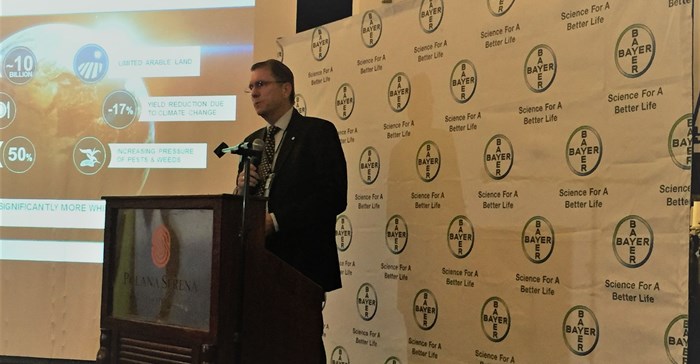Bayer opens local office in Mozambique, cements presence in Africa
While Bayer will initially have a large focus on the local agricultural sector through its crop science division, it is already present in the country through the distribution of some of its pharmaceuticals, animal health products and anti-malaria programmes. The new Bayer regional office will be based in the capital city, Maputo, and will include sales support from the crop science division, and has an operational team on the ground in different parts of the country.

Mozambique’s Honourable José Condugua Pacheco, Minister of Agriculture and Food Security welcomed Bayer’s investment into the country. Pachecho has previously gone on record indicating that his biggest expectation is to attract more investment into the country. Bayer intends on engaging with the minister as the company’s presence is cemented in Mozambique.
Synergies with Mozambique
“We believe that we have synergies with the aspirations of the Mozambican government. This is especially true of our crop science division that is introducing solutions that meets the unique requirements of the region, which is endowed with a range of climatic, soil and water conditions opportune for a diverse range of agricultural production. Bayer has a lot to offer Mozambique with our strong focus on initiatives that can help shape the future of the local agricultural sector that can enable a sustainable, nutritious food supply,” says Dr Klaus Eckstein, Bayer’s CEO and head of crop science in Southern Africa.
In addition, Bayer has already committed to Mozambique through its partnership with Goodbye Malaria and has been on the frontline of the fight against malaria for some years. Malaria remains the most common cause of death in Mozambique.
Promising economic trends
Current reports indicate that the Mozambican economy is showing signs of recovery after a difficult 2016 with the first quarter GDP growth in 2017 more than double the growth rate of the preceding quarter. In addition, the output of the agricultural sector in Mozambique is expected to register growth of 6.5 percent this year.
“With the promising economic trends pointing upwards, we believe that we are coming into Mozambique at the right time to make our contribution in the region, drawing from over 100 years of experience in operating on the African continent,” concludes Eckstein.
















